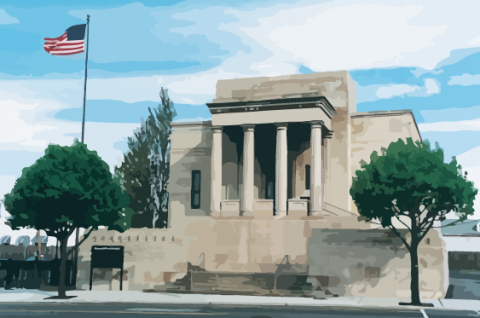Event box

Science in the Summer
GSK Science in the SummerTM - In collaboration with The Franklin Institute
Children must have completed 2nd grade up through the 6th grade.
Please register each child in your family individually. All libraries will offer at least 4 of the 5 career activities as part of the program, using the same curriculum. Each library will hold their own registration. Patrons will know right away if they have been accepted into the program at a specific library and can register at additional libraries if placed on a waitlist. Sign up at this location or check our webpage to see all available openings and contact the local library for any additional registration information. All students completing at least 4 activities, will receive a complimentary ticket to the Franklin Institute.
Summer 2024 - Be a Space Scientist!
Be a Space Scientist! The Be a Space Scientist! curriculum invites children to take the role of scientists and engineers as they investigate the challenges of exploring and traveling in space. The activities encourage scientific practices like making observations and testing hypotheses while exploring the following big ideas: Space science combines science and engineering to answer questions about the universe and how people (or other living things) might travel or live in space. Space is big! Space scientists often can’t visit or touch the things they study. Instead, they: Build tools and machines to gather information about faraway objects Compare what they see in space to things they can study on Earth Use models to test ideas and represent complicated systems.
Each Be a Space Scientist! activity highlights a real-world career through a story that invites children to play the role of a person in that career: Be an Astrobiologist Future space missions will return soil samples from other planets that may contain microscopic life—but how will we know if it’s there? Investigate an Earth microbe (yeast) and design a test for the presence of similar microbes in unknown soil samples.
Be a Planetary Geologist A planned mission to Mars needs to know where on the planet astronauts should land, and what kind of landscape they will find there. Examine photos from a Mars space probe, compare Mars surface features to landforms on Earth, and use a model to investigate how the Mars landscape features might have formed.
Be a Robotics Engineer You are part of a team designing a robotic rover to explore the surface of another planet. Use simple materials to build a prototype of a scooping arm for the rover that could collect soil and rock samples.
Be a Rocket Engineer Your space agency is designing new rockets that need to safely carry people and cargo as far as possible. Use a paper rocket model to investigate how factors like launch angle and cargo distribution affect the length of a rocket’s flight.
Be a Spacesuit Designer A spacesuit needs to protect an astronaut from hazards like radiation and tiny (but dangerous) micrometeoroids. Test materials to find out how well they block UV radiation and resist puncture and decide which materials would work best for keeping an astronaut safe.
- Dates & Times:
- 1:00pm - 3:00pm, Tuesday, August 6, 2024
1:00pm - 3:00pm, Wednesday, August 7, 2024
- Time Zone:
- Eastern Time - US & Canada (change)
- Location:
- Adult Library
- Library:
- Mary M. Campbell Marcus Hook Public Library
- Audience:
- Children
- Categories:
- Science in the Summer

